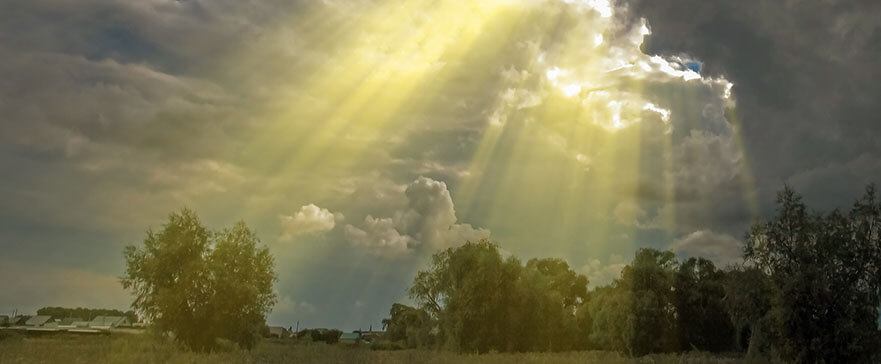I read about it all the time: Knockers of the Rapture consider it a false doctrine satisfying the Christian’s longing to escape the world and all its problems. “Beam me up, Jesus! It’s a mess here, and I want out.”
Jürgen Moltmann, the renowned Reformed theologian, once critiqued the Left Behind series, and he wrote, “The pious dream of rapture contains a resignation that abandons this earth to destruction …. A God who only waits to rapture Christian crews … cannot be a God whom one can trust.”
I have great respect for Moltmann, but we disagree on what Paul called the “blessed hope and glorious appearing of our great God and Savior Jesus Christ” (Titus 2:13).
How the Thessalonians Understood the Rapture
For starters, the word rapture (rapturo) is biblical. It is the Latin translation of the Greek word harpazo found in 1 Thessalonians 4:17, which means “to be caught up.”
Paul was writing believers in Thessalonica to encourage their faith, that is, that they haven’t missed the completion of their salvation, the resurrection of their bodies.
The resurrection of the dead raised more questions than bodies.
I’m sure there was confusion at this time in the early church. Paul was addressing this issue 20 years after the death, resurrection, and ascension of Jesus. Christ hadn’t returned and Christians were dying. I’m sure the Thessalonians were wondering, “Did we miss something? How will God raise the bodies of those who were buried, or worse, burned or drowned?” The resurrection of the dead raised more questions than bodies. It’s a question many believers have today, 2,000 years later.
Paul gently assured his brothers and sisters that Christ is still coming for both those who have passed and those who are alive! And when He comes, the dead will rise first (1 Thessalonians 4:16), then the living will be “caught up” (raptured) to meet the Lord in the air!
Now, earlier in his letter Paul reminded the beleaguered that their destiny isn’t to endure the divine wrath that’s coming (1:10), when God pours out His judgment on mankind (5:2, 3). Instead, our hope is in His return!
How We Understand the Rapture
For those who believe in the Rapture of the church, our calling isn’t to escape, but to wait. We’re to wait for His coming as all His creation has been eagerly longing (Romans 8:19).
For those who believe in the Rapture of the church, our calling isn’t to escape, but to wait.
Is it wrong to long for His coming? Should we feel guilty for expressing our desire to hear the “trumpet of God” (1 Thessalonians 4:16)? I certainly don’t think so.
When Paul wrote Titus about our “blessed hope,” he said we’re “waiting” for His glorious appearance. The “waiting” Paul describes is the same “waiting” my children expressed on Christmas morning when they violently shook my wife and me from sleep long before dawn, only to find out if now was the appropriate time to open the gifts that awaited them under the tree.
“No!” I told them. “It’s only 4:30 a.m.! Go back to bed.”
At 5:00 a.m. they returned, “Can we go downstairs now?”
“No!” I replied. “Bed, now!”
Their commitment to rip open their Christmas loot continued until we knew there was no stopping them. So, at 5:45 a.m., we made our not-so glorious appearance. My kids weren’t looking to escape; quite the opposite, they were anxious to receive what they had waited weeks to experience.
Christians who long for the Rapture aren’t pious Houdinis frantically searching for their escape hatch. Instead, we’re Christians confidently waiting with eager expectation for the completion of our redemption, just as Paul, the apostles, and the rest of faithful believers have for centuries.
God’s promise to resurrect believers who have gone before us and transition those who are still alive is the greatest gift we have coming, so of course, we’re excited. We should be—it’s in our spiritual DNA. So let us wait eagerly together, let us not waste what time we have, and let us pray as the apostle John did at the end of Revelation: “Come, Lord Jesus!” (22:20).





Comments 4
Our Christian radio station here in Los Angeles is supporting a Christian-Jewish Fellowship that represents Jews as sweet people who don’t need a Savior and never mention the name of Jesus in their broadcasts. Also, they think helping them return to Israel now is a fulfillment of EZ 36 etc. prophesy. Is this false doctrine or am I missing something?
Hi George! It’s a false doctrine to teach Jewish people don’t need a Saviour. The Apostle Paul writes in Romans, “For I am not ashamed of the gospel, because it is the power of God that brings salvation to everyone who believes: first to the Jew, then to the Gentile.”
Jew and Gentile alike are in need of a Saviour to deliver us from our sins.
As for Israel and Ezekiel 36-37, I do agree that modern Israel’s reconstitution in the land is connected to what the prophet Ezekiel envisioned in those passages. God is at work!
There is a special promise for those who eagerly WAIT!! Thank you for not getting discouraged as we obey and wait!!!
I have been a follower and believer for many years now. I have visited/toured Israel three times and immensely enjoyed each visit. Learning many new things and seeing and experiencing scripture take on profound and new meanings as the precious word and land came together. I enjoy your articles and Israel My Glory has been read in my home for many years.